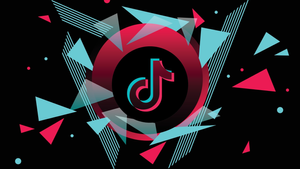TikTok has announced that it is expanding its labelling of AI-generated content within the short form video app, by automatically labelling content that has been generated by AI on third party platforms.
The clear labelling of AI-generated material is one of the demands being made by the music community, so that both users and the music industry can see what content is entirely generated by AI. Politicians and news organisations have also been making similar demands, more concerned about AI generated content exacerbating the fake news problem and being used to influence elections.
“Our users and our creators are so excited about AI and what it can do for their creativity and their ability to connect with audiences”, Adam Presser, TikTok’s Head Of Operations and Trust & Safety told ABC News. “And at the same time, we want to make sure that people have that ability to understand what fact is and what is fiction”.
TikTok already labels content made using its own AI tools, and the app's existing rules require creators to manually add labels to their own content if it has been generated with AI. However, the company will now also utilise digital watermarks included in AI-generated content made on other platforms to label that content too.
It's an initiative enabled by its participation in the cross-industry Coalition For Content Provenance And Authenticity, which has developed a Content Credentials specification.
Microsoft, Google, Adobe and - as of this week - Open AI are all part of that Coalition, as are the Recording Industry Association Of America, Universal Music and Sony Corp. Though there are still some notable gaps in its membership among popular AI platforms.
As lawmakers around the world seek to regulate AI, labelling AI-generated content is certain to be a requirement of any new regulations. The recently passed EU AI Act states that providers of AI models “generating synthetic audio, image, video or text content, shall ensure that the outputs of the AI system are marked in a machine-readable format and detectable as artificially generated or manipulated”.
With TikTok already facing political woes in various countries over its systems for dealing with harmful content and ownership by China-based ByteDance, it’s probably worth its while being seen to be ahead of things when it comes to labelling the outputs of generative AI.

